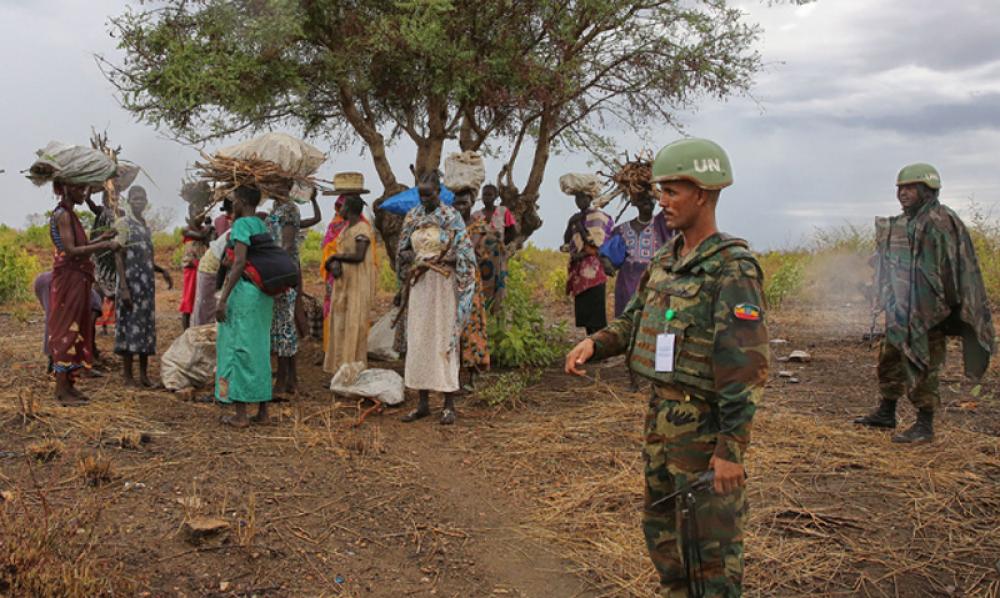Just Earth News | @justearthnews | 17 Dec 2019, 09:26 pm Print

New York: Extending the deadline for the establishment of a unity government in South Sudan has helped maintain a ceasefire but also disillusioned many citizens, the Security Council heard on Tuesday.
David Shearer, head of the UN Mission in South Sudan (UNMISS), briefed ambassadors on developments towards the new administration, amid ongoing humanitarian concerns worsened by recent flooding.
President Salva Kiir and opposition leader Riek Machar were expected to form a unified transitional Government by mid-November, in line with a revitalized peace agreement signed last September. With days to go, that deadline was extended by a further 100 days.
Shearer reported that the peace deal has led to “a transformative process” in South Sudan, which has recorded steep declines in civilian casualties and abductions, as well as sexual violence, while improved security has prompted at least 645,000 displaced people to flee their homes.
“But the choice to delay a transitional government twice has dampened initial hopes, eroded some trust and confidence, and caused people to suspect that the political will between the parties is waning”, the UNMISS chief said, speaking via videoconference from New Zealand.
Progress needed on key issues
South Sudan is the world’s youngest country, having attained independence from Sudan in July 2011. However, it has been mired in political instability and violence for the past six years.
Shearer underlined the international community’s support for the nation, including by the African Union, regional body IGAD, and the UN Security Council.
“The international engagement, together with Dr. Riek Machar’s presence in Juba over the past week, and during face-to-face meetings with President Kiir, has led to positive statements from both leaders in the past 24 hours”, he reported.
Shearer informed the Council that by mid-January, there needs to be progress in key areas of the peace agreement, such as the reunification of forces but also on states and boundaries.
“Because power and access to resources is heavily vested in states, and in turn, often linked to ethnic groups, it means that this particular issue is politically charged”, he explained.
Fighting and flooding threaten citizens
Meanwhile, conflict continues to take a toll on South Sudan’s people.
While the ceasefire has largely held, the UN mission chief warned that a recent spike in inter-communal clashes risks spilling into more serious political violence.
At the same time, some 900,000 people have been affected by flooding which has washed away crops, destroyed homes and sparked fears of famine. Humanitarians have launched a $1.5 billion plan to support some 5.6 million people next year.
Looking to 2020, Mr. Shearer said the choices that South Sudan’s leaders make now will determine this country’s future for generations to come.
He stressed that ultimately it is up to the sides to display the political will to fully implement the agreement to form the new government.
“The joint meetings in the past days between President Kiir and Dr Riek Machar are encouraging, with both sides recommitting themselves to the peace process. It has restored some of the optimism and momentum that has been lost with the delays in the peace agreement,” he said.
“All parties now need to choose to follow on with their words, and the international partners need to remain fully resolute, as I am sure they will do, in their support.”
Photo caption and credit:
UNMISS\Nektarios Markogiannis
Ethiopian peacekeepers deployed to the United Nations Mission in South Sudan (UNMISS) escort a group of women outside a UN-run site and create a safe perimeter within which they can search for firewood without being at risk of attack, 28 March 2017.
- Viral Irish food bank photo sparks shocking racist attacks on Indians
- Caught on camera: Two foreigners assaulted in Israel in an alleged racial attack
- Pakistan: Parents heartbroken after court sides with man accused of kidnapping minor Christian girl
- Pakistan: Trafficked 35 years ago, Bangladesh-born woman approaches court against FIA for offloading her from flight!
- Hindu tea worker found bound and bloodied in Bangladesh garden during general elections; investigation underway





-1763561110.jpg)
